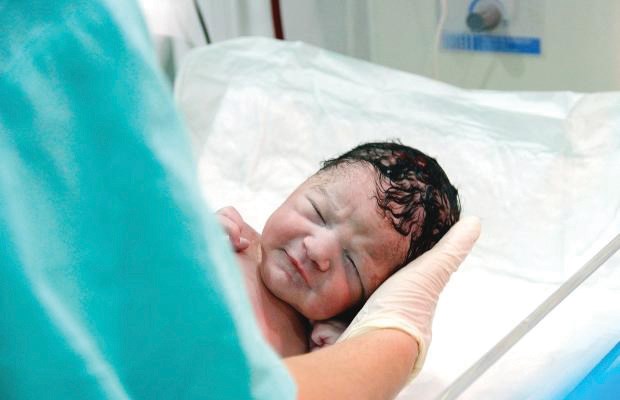With non-residents now representing about one in every six patients at Richmond Hospital’s maternity ward, a petition to the federal government has been penned from a local community activist concerned about the potential impact “anchor babies” may have on the Canada’s social security net.
After witnessing numerous pregnant women coming and going from a nearby house in her Blundell neighbourhood, Kerry Starchuk is asking Ottawa to reconsider its birthright citizenship laws, which grant a passport to any child born in Canada, regardless of the parents’ citizenship or residency.
The petition was sponsored by Richmond Centre MP Alice Wong, who, via email from her executive assistant, stopped short of expressing outright support for Starchuk.
“While a sponsor MP does not have to agree with the opinions or request set out in the petition, this topic affects the constituents of Richmond Centre,” read the email from Wong’s office.
It goes on to state how such a citizen may not live in Canada for the first 18 years but can return to sponsor family members “thus taking advantage of Canada’s public health system and social security programmes such as OAS and the GIS.”
Starchuk said she is looking for “a fair system that represents everybody.
“Are we having these people contribute from the time they are born? We have local people contributing. Just because you have a baby, you are entitled to the benefits? I’m not sure that’s fair.”
According to Vancouver Coastal Health (VCH) data, the 2015/16 fiscal year had the greatest proportion (15.7 per cent) of non-residents showing up at Richmond Hospital to give birth.
In total, 305 of 1,935 births were to non-residents — defined by VCH as “other country resident, private pay.”
The 2014/15 fiscal year set a record with 339 such births, or 15.5 per cent of all births.
Between 2004 and 2010 there were 18 non-resident births per year in Richmond, on average. Starting in 2011, the numbers have climbed steadily, with 86 births — or 4.5 per cent of all births — for the 2013 calendar year.
Nationality is not tracked, although according to Richmond News’ sources at the hospital, it’s understood most non-residents are from China, where companies have been reportedly charging clients and setting up maternity “hotels” in the city.
VCH said Tuesday that no one was available for an interview.
In the past, health officials have noted non-resident patients are charged on a full cost-recovery basis and the rate of remuneration is high. For instance, many in-patient services are two to three times the rate the hospital charges the government for insured expectant mothers.
The hospital asks non-residents to pay a $7,500 deposit for a regular birth and $13,000 for a C-section birth.
Birth tourism is reported to happen for several reasons, such as preferred health service, circumventing national birth limitations (such as in China) and gaining citizenship for the child without having to live in Canada.
Immigration critics and the former Conservative federal government have expressed concerns over the latter.
In 2013, former immigration minister Jason Kenney proposed to change “birth on soil” provisions in the Citizenship Act by not granting citizenship to newborns of non-residents, except in cases when the baby would become stateless.
Starchuk’s petition provides for citizenship status of a newborn if one parent is a Canadian or permanent resident of Canada.
She wants Canada to take a more restrictive approach, as is done in every Western country in the world, save for the United States (which, notably, has taxation measures for every passport-holding citizen regardless of where income is earned).
For instance, in the U.K., at least one parent must be a British citizen, or permanent resident for the newborn to gain citizenship. In Australia, a child born to non-Australians can gain citizenship by living in the country to age 10.
Kenney’s controversial Bill C-24, which sought to reform citizenship laws, was rescinded by the new Liberal government earlier this year.
Outspoken Vancouver immigration lawyer Richard Kurland told the News this was a good thing, as rescinding the Jus soli (right of the soil) law would create a bureaucratic nightmare.
Neither Citizenship and Immigration nor Statistics Canada track non-resident births across Canada, and while Kurland said Kenney was correct to suspect the numbers are underreported by hospitals, he doesn’t think it’s a major issue that requires federal action, considering there are roughly 380,000 births in Canada each year.
“It’s a transaction cost of democracy. You’ll always have someone doing something wrong. If one kid in the class does something wrong, are you going to punish the whole class?” asked Kurland, who said Richmond is likely to see more non-resident births, given its proximity to the airport, and hence Asia, particularly China.



